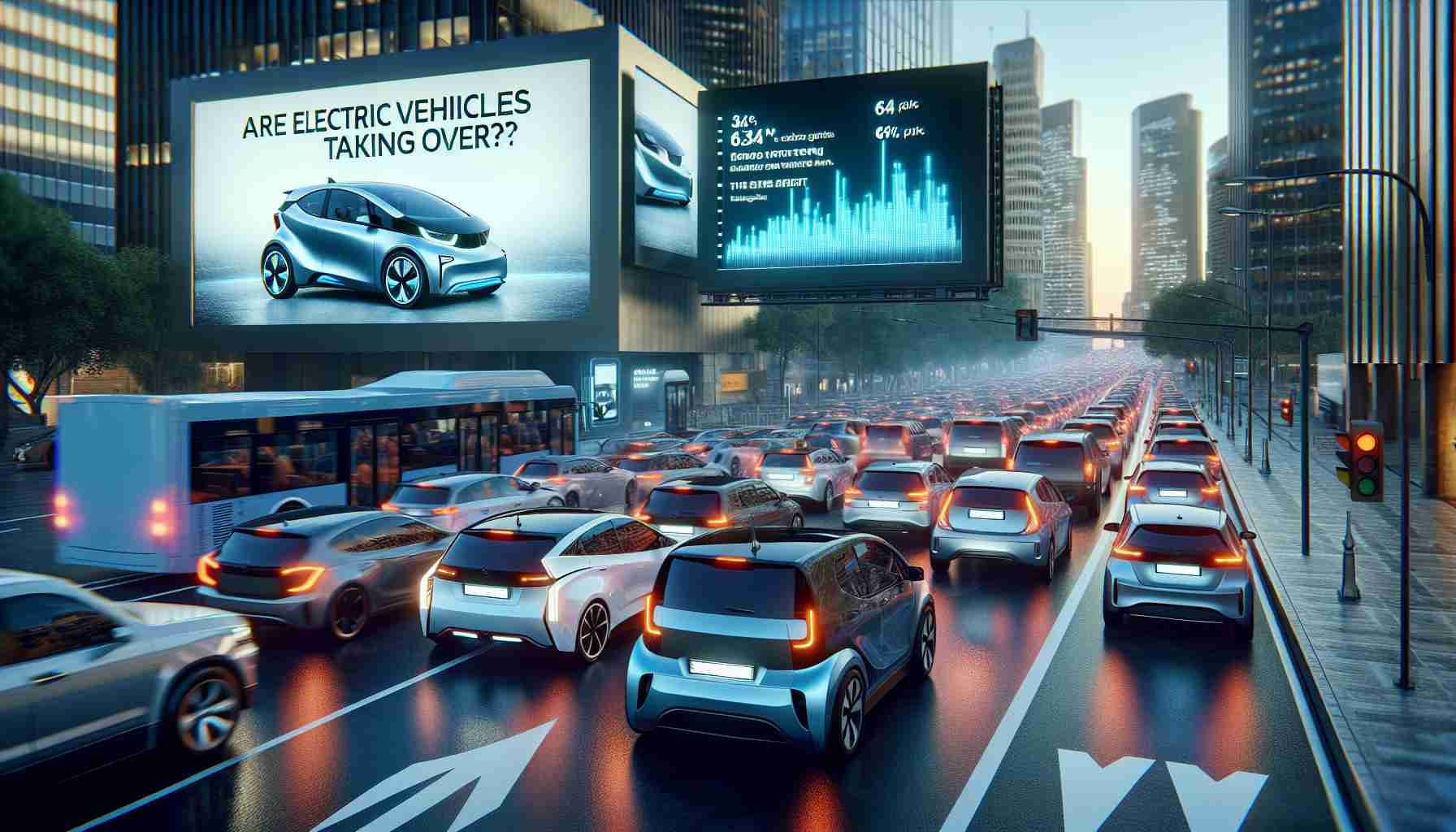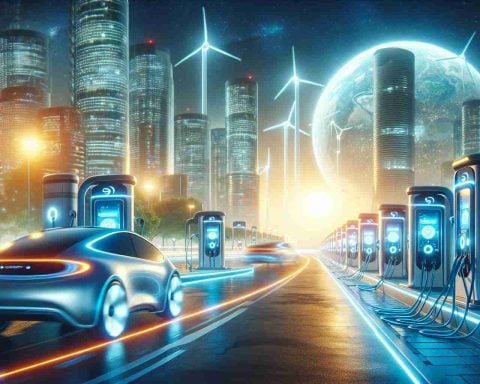The Future of Electric Vehicles in India
The electric vehicle (EV) market in India is on the verge of a significant transformation, poised for rapid growth over the next three years. A recent report from Axis Capital has highlighted several key factors contributing to this momentum: the introduction of reliable and competitively priced EV models and the anticipated expansion of the charging infrastructure.
The Auto Expo 2025 emerged as a pivotal event, showcasing a plethora of innovative EV designs. Major automotive companies concentrated their efforts on electric models, minimizing their focus on traditional internal combustion engine vehicles. Notably, Tata Motors made headlines by unveiling the Harrier and Sierra EVs, both poised to capture consumer interest.
Maruti Suzuki also entered the spotlight with the launch of the e-Vitara, its first global electric SUV, which boasts two battery options and an impressive driving range of up to 500 kilometers. This vehicle is set to compete against formidable rivals like the Hyundai Creta EV and Tata Curvv EV.
Hyundai didn’t lag behind, debuting the Creta EV that features advanced safety technologies and swift charging capabilities. Major global manufacturers including BYD, MG, and VinFast displayed their upcoming electric models, fueling excitement within the market.
With these developments and the expected enhancement in charging facilities, the Indian automotive sector is gearing up for an electric revolution, simplifying the transition to a sustainable future.
The Broader Impact of India’s Electric Vehicle Revolution
The burgeoning electric vehicle (EV) sector in India holds profound implications for the country’s economic landscape, cultural identity, and environmental sustainability. As the nation pivots towards electric mobility, this shift catalyzes a significant transformation in daily life, influencing consumer choices and redefining automotive culture. The increasing availability and affordability of EVs is likely to make sustainable transportation a normative choice among Indian consumers, heralding a culture of eco-consciousness.
From an economic perspective, the growth of the EV market is set to influence various sectors, including energy, manufacturing, and technology. With the government’s ambitious targets for electric mobility, it could lead to a surge in job creation within these industries. The Indian government’s push towards local manufacturing under its Make in India initiative can also enhance the global competitiveness of Indian firms in the EV manufacturing space, projecting a shift in economic power dynamics.
Moreover, the environmental potential of a robust EV framework cannot be understated. As urban pollution levels skyrocket, transitioning to electric vehicles is crucial for improving air quality in densely populated cities. The anticipated reduction in dependence on fossil fuels aligns with broader global climate goals, presenting India as a proactive player in combating climate change.
Looking ahead, the integration of renewable energy sources into the burgeoning EV infrastructure could further amplify this positive impact. As India strives to meet its commitments under the Paris Agreement, the convergence of electric mobility and sustainable power generation may define the nation’s trajectory in the coming decades, underscoring the long-lasting significance of the EV movement.
The Shocking Evolution of Electric Vehicles in India: What’s Next?
## The Future of Electric Vehicles in India
The electric vehicle (EV) market in India is on the cusp of an exhilarating transformation, forecasted to experience unprecedented growth in the coming years. A new report from Axis Capital highlights pivotal elements fueling this momentum, particularly the rollout of dependable, competitively priced EV models coupled with the anticipated expansion of charging infrastructure across the nation.
Innovations in Electric Vehicle Design
The Auto Expo 2025 stood out as a landmark event that spotlighted an array of groundbreaking EV designs. Leading automotive companies are prioritizing electric models, showcasing their commitment to transitioning from traditional internal combustion engines.
Among the exciting new releases, Tata Motors unveiled its much-anticipated Harrier and Sierra EVs, generating significant consumer interest with their modern features and aesthetics. Similarly, Maruti Suzuki introduced the e-Vitara, its inaugural global electric SUV, which offers two battery options and an impressive driving range of up to 500 kilometers. This model is set to take on strong competitors, such as the Hyundai Creta EV and Tata Curvv EV.
Growing Competition
Hyundai made a significant impact by launching the Creta EV, equipped with cutting-edge safety features and rapid charging capabilities, ensuring it meets the demand for convenience and security. Global players like BYD, MG, and VinFast are also entering the Indian market with innovative electric models, increasing competition and driving advancements in technology and consumer choice.
Charging Infrastructure Expansion
The anticipated growth of charging stations is a critical element that will underpin the EV revolution in India. With the government increasing its focus on building a robust charging network, it is expected that this infrastructure will alleviate range anxiety for potential EV buyers, thus enhancing adoption rates.
Pros and Cons of Electric Vehicles in India
Pros:
– Environmental Benefits: EVs significantly reduce carbon emissions compared to traditional vehicles.
– Reduced Operating Costs: Electric vehicles generally have lower running costs due to less maintenance and cheaper electricity prices compared to fuel.
– Government Incentives: The Indian government is offering various incentives for EV manufacturers and buyers, including tax rebates and subsidies.
Cons:
– Initial Cost: The upfront cost of many EVs can be higher than their gasoline counterparts, although this is changing with more models entering the market.
– Charging Infrastructure: The current state of EV charging facilities is still being developed, which can create challenges for buyers in rural areas.
– Battery Lifespan: Concerns about battery life and replacement costs remain prevalent among potential EV owners.
Future Trends and Predictions
As the EV market matures, industry experts predict that advancements in battery technology will lead to lower prices and increased efficiency. The integration of renewable energy sources for charging stations is also expected, enhancing the sustainability of electric vehicles in India. Moreover, smart technologies will play a crucial role in providing a seamless user experience, with features like app-based charging management and vehicle diagnostics gaining prominence.
Market Analysis
The Indian electric vehicle market is forecasted to grow exponentially, with estimates indicating a market size increase from around $1.5 billion in 2022 to over $100 billion by 2030. The overall shift toward EVs is supported by a combination of consumer demand for sustainable alternatives, government policies focused on electric mobility, and international collaborations in EV technology.
Conclusion: The Road Ahead for EVs in India
As the landscape of electric vehicles evolves, the Indian automotive sector is gearing up for a comprehensive shift towards sustainability. With strong manufacturers, government backing, and increasing consumer interest, the transition to electric mobility appears not only feasible but also inevitable.
For more insights on the electric vehicle market and trends in India, visit AutoHex.













